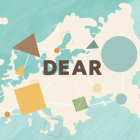Education, Policy and Democracy: how GCE feeds all
News details

“If you write about someone getting shot at, you can only imagine what they feel. But you have to know how people feel to tell their story.” Aqual, a primary school student, describes the power of “knowing and feeling” different people’s stories and perspectives. A few years ago, Aqual emigrated with her mother and uncle from South Sudan to the United States. For a school project in her new school, Aqual researched her migration story from three perspectives: her mother’s, her uncle’s, and her own. She discovered that knowledge, understanding, and experience are multifaceted: “The timeline and the personality get lost if you do not do perspectives”, she concluded after delving into their three stories.
This year’s ANGEL Conference opened with Aqual’s story. Professor Verónica Boix-Mansilla from Harvard University started with Aqual's research to underline the importance of different standpoints: “With global citizenship education, perspectives become the air that learners breathe”.
And how can we get better at acknowledging perspectives? By nurturing learning dispositions, Professor Boix-Mansilla suggests. She describes how true learning goes beyond knowing - and shifts towards embodying what has been learnt. “It is about creating cultures of global competence, where the cognitive component is overcome and becomes an ‘identity thing’, that is to say ‘becoming a person who is…’ versus a person who is able to carry out a behavior”.
The ANGEL Conference 2025 was devoted to the nexus between global citizenship education (GCE), democracy, and sustainability. Current trends are in plain sight: trust in institutions is eroding; the rule of law and human rights are being violated; war is spreading; the global consensus on global challenges (SDGs) is broken.
With all this in mind, being committed to a fairer and greener world seems increasingly hard. But Liam Wegimont, director of GENE, does not dwell on the magnitude of the challenge. Instead, he calls upon the educators’ mission to build hope: “Given the circumstances [around the world], we could be forgiven for heading in the direction of despair - but we can’t. Because we are educators. It is our job to forge hope, and the active creation of hope is our mission”.
GCE is quintessentially democracy education. It is learning-by-doing: it tackles power relations, fosters a culture of inclusivity and ultimately builds an engaged citizenry, capable of critical thought and action. Educators can be the gatekeepers or multipliers of GCE. Teachers’ agency and training becomes key, as educators cannot teach what they do not know.
In educational settings, GCE feeds cultures of global competence and builds hope for a better society. But how can it improve relevant policies? How can GCE help us understand the current transformations, and inform policy-makers to respond to them? Research is an ally.
Douglas Bourn, Professor at University College London (UCL), calls for closer collaboration between research, practice and policy-making: “We [scholars] can do better in telling ‘our stories’ and to work closely with practitioners and policy-makers”. Research can highlight what works in practice - and what does not. Fact-based case studies help build and support alternative arguments and political agendas. Research builds legitimacy for the GCE field. And it connects a community from across the globe.
Finally, Ms. Nanaia Mahuta, former Minister of Foreign Affairs of New Zealand, closed the ANGEL conference with an invitation to reconsider our perspectives: “Current systems are not only fragile but also unjust. Whose world views are shaping our response? Could indigenous values, wisdom, and perspectives offer a lens through which we could consider another way? If it takes a village to raise a child, we need to re-establish the village”.
The 2025 edition of the ANGEL Network conference brought to Berlin 290 participants from 65 countries; 120 online participants; 91 presentations (selected out of 220 proposals); six symposia and six workshops.
“Paradigm shifts have historically happened in difficult times. It seems we are there…”, the call by Professor Boix-Mansilla seems to summarise the spirit of the conference.

Log in with your EU Login account to post or comment on the platform.